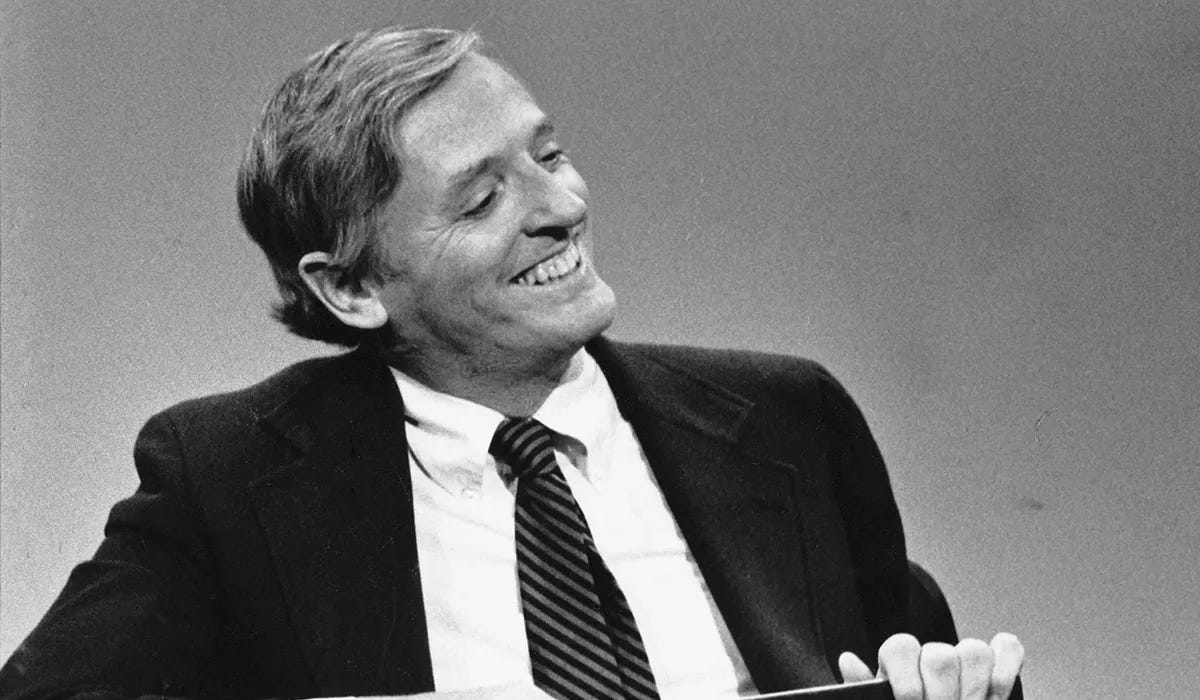Ten Principles of Conservatism
These ten principles take into account the idea that there are objective moral truths that are as real as the law of gravity.
On Tuesday, March 5, I am undergoing surgery to remove a brain tumor. I expect everything will go well, but there is a substantial recovery period following a surgery like this. So, in the meantime, I will send you some “oldies but goodies” from my past writings. I would be grateful for your prayers. - Mark
This is what I think a conservative political party should be based on - Ten principles of conservatism as outlined by Russell Kirk, the writer of The Conservative Mind and one of the great intellectuals of the conservative movement. It is important to actually define these principles because the word conservatism has been given a lot of different meanings this year by people wanting to claim its mantle.
These ten principles take into account the idea that there are objective moral truths that are as real as the law of gravity. The understanding that humans are not perfect and therefore not capable of utopia. That conservatism is based not on the impulses of one person but on the collective wisdom of the ages. That human beings are stronger when working together than working separately - but only when the individual freely chooses to join in the community - never when it is compelled.
See what you think and if you agree. Are these principles outdated?
They are:
1. A belief in an enduring moral order - timeless principles and objective moral truths are as real as any natural law, such as the law of gravity or the law of the harvest.
2. The adherence to custom, convention, and continuity - we build on and respect the sacrifices and contributions made by those who came before us.
3. The principle of prescription or building upon the genius of those who came before us - no one person suddenly has all the answers to society's problems, but we get the answer through wisdom,
4. The principle of prudence - being realistic about what can and cannot be done is a central principle of conservatism.
5. The principle of individual variety over the uniformity and deadening egalitarianism of socialist and other utopian systems - we believe in individual freedom - which is why we oppose speech codes, restrictions on religious expressions, and individualism.
6. The principle of imperfectability – since we know human nature is flawed and therefore governments must also be - James Madison expressed this perfectly in the Federalist Papers when he said, "If men were angels, we would have no need for government." There is no such thing as a perfect system of government or economics. The systems that are best (not perfect) are those that maximize the respect and freedom of the individual.
7. That freedom and property are linked - an inescapable conclusion for conservatives. One only owns what one has paid for - one way or another.
8. The principle of voluntary community over involuntary collectivism – Jesus never suggested that the way to help the poor was to pay more taxes but rather to give generously from the heart. Collectivism has never worked, while communities are the foundation of a healthy society.
9. Prudent restraints upon power and human passions - no one person should possess too much power; the more diffused power is, the safer the freedom of the people is. But at the same time, we should not be able to trample on the rights of others because of our own self-centered desires. There is a balance.
10. Permanence and change must be recognized and reconciled in a healthy society – change occurs all the time, but there are certain principles that are objective and unchangeable that must be considered for a change to be successful. The language of conservatism must be updated with each generation, and the same timeless principles must be applied to current problems. One can't repeat what worked 40 years ago because those times were different, but the principles that created success should be applied to today's problems. We must continually innovate and confront new problems while maintaining an anchor to truth and experience.
According to Kirk, conservatism turns out not to be about the individual only but how he or she interacts with their community. We do not exist in a vacuum but are seemingly designed for relationships with others. And as such, conservatism is not so much a philosophy as it is an anti-philosophy geared more towards rules for life, freedom tempered by personal responsibility.
In collectivism, the limitations on personal freedom result in social interactions based on the lowest common denominator, where there is little creativity and even less ability to pursue individual happiness - by design. But in conservatism, there is nothing as strong and creative as a community of free people pursuing happiness - each doing what they do best while respecting the right of everyone else to pursue the same ends. The synergy of free people creates a society where we are better together than we are by ourselves.






I'm the proud owner of that book and have been for decades. It is timeless.